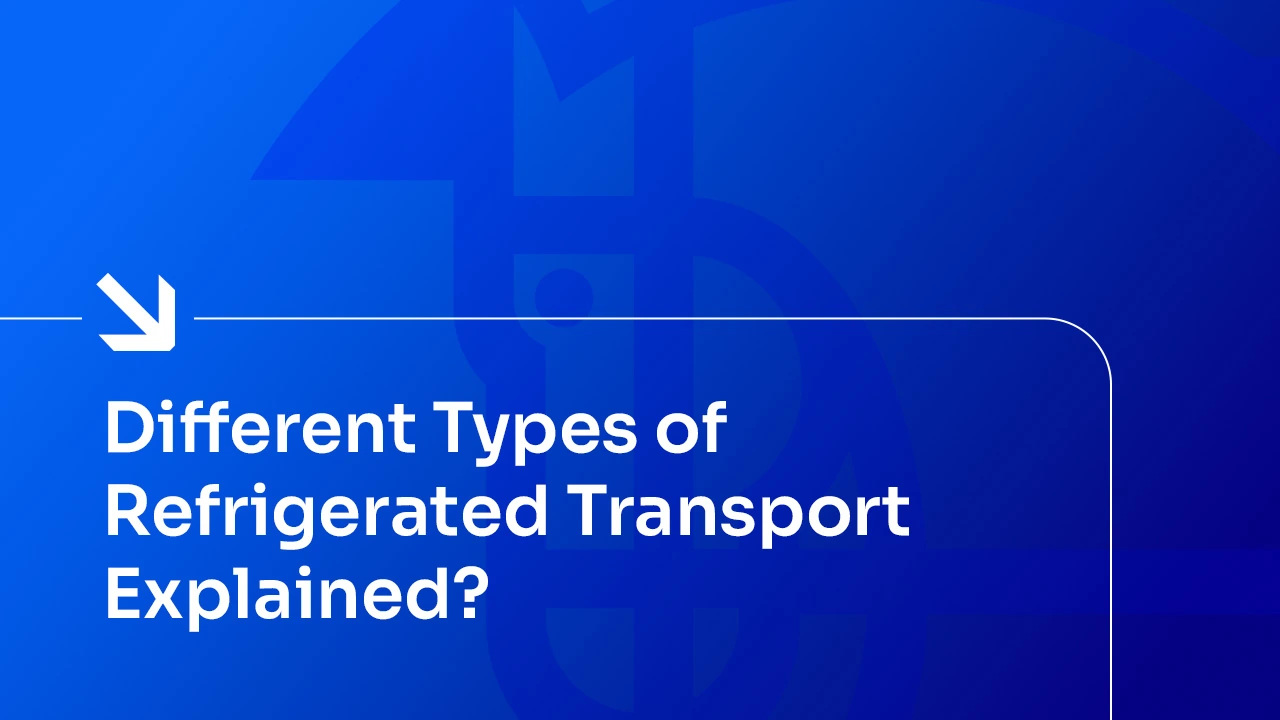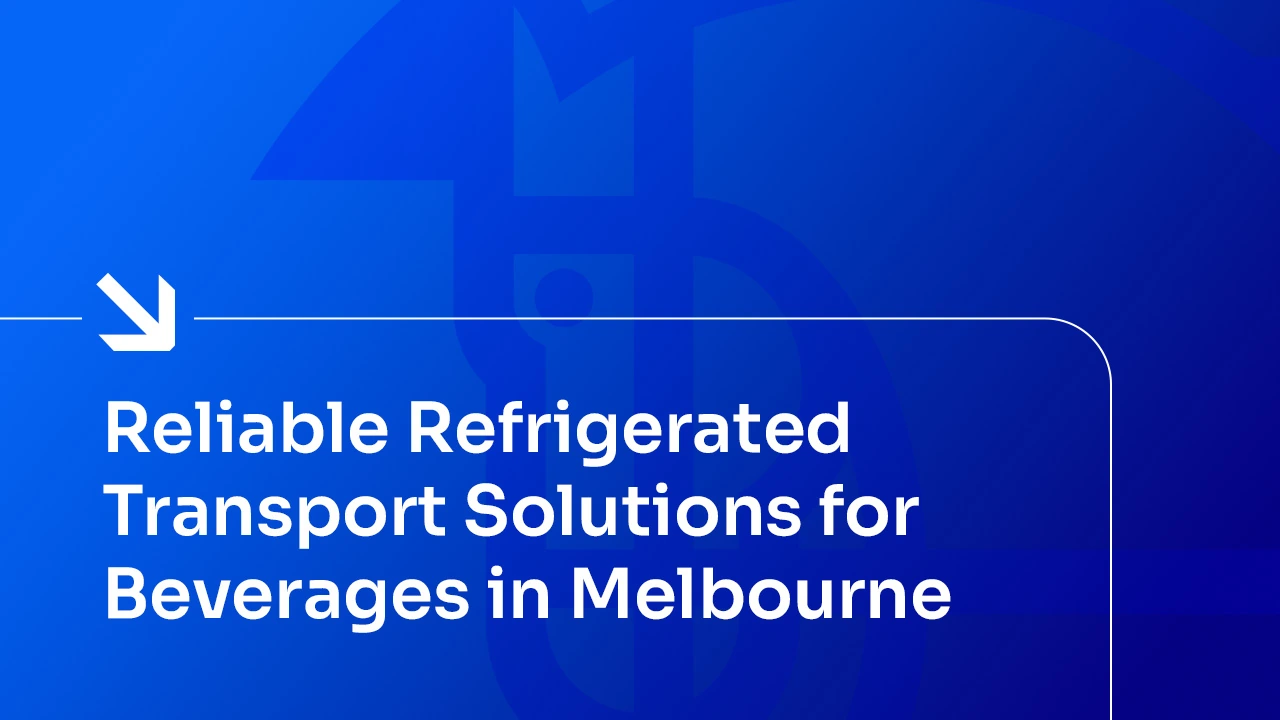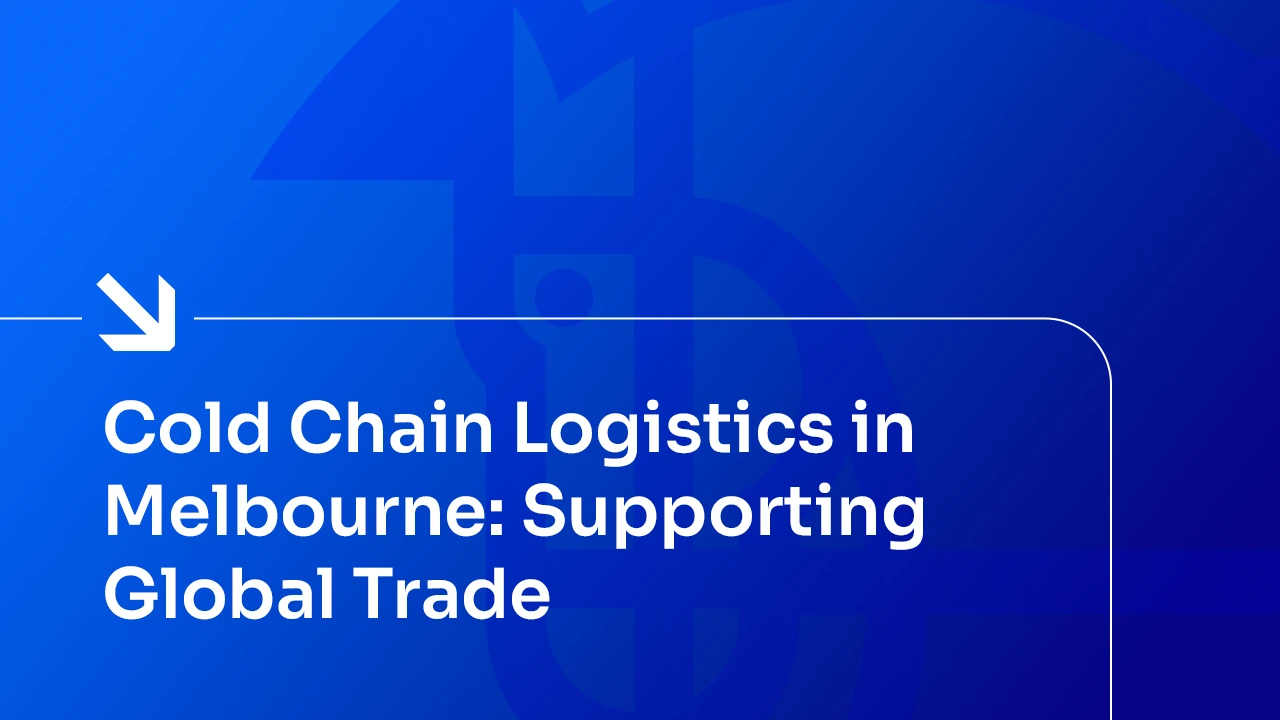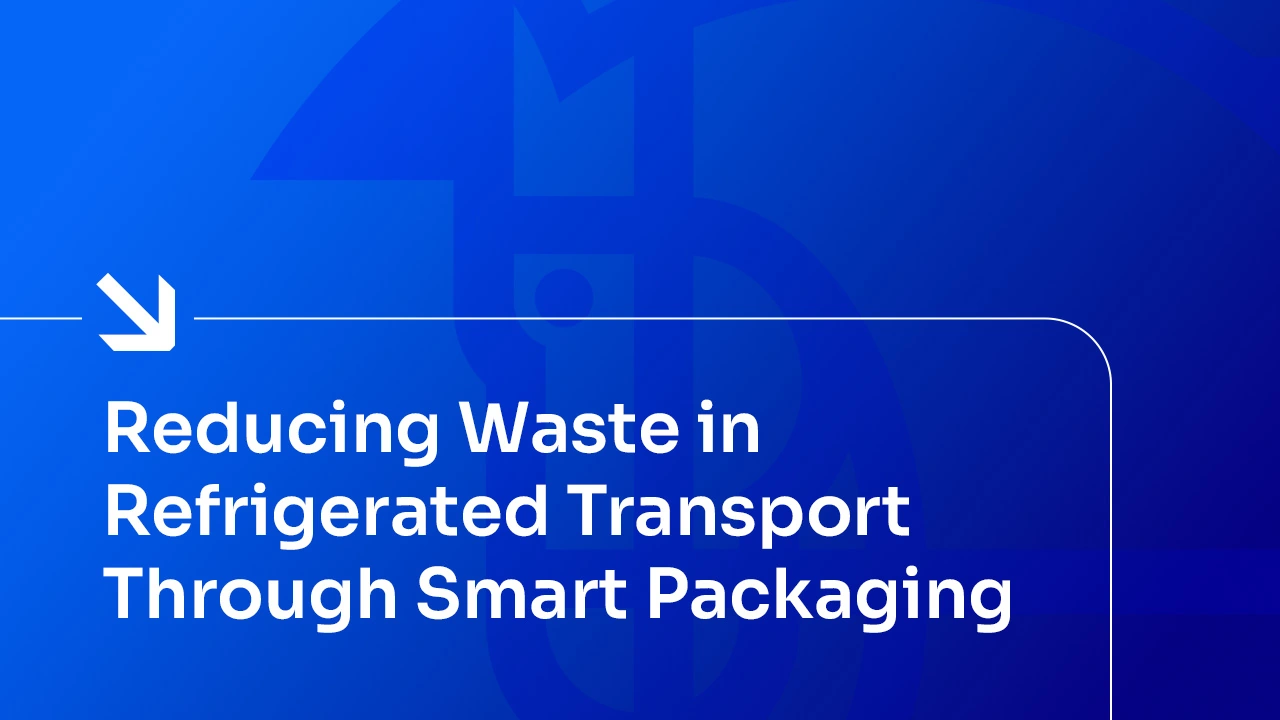Introduction
In Melbourne, cold chain transport plays a crucial role in ensuring the safe delivery of temperature-sensitive goods, ranging from fresh produce to pharmaceuticals. As demand for efficient and sustainable transportation solutions increases, companies are turning to innovative technologies to improve the way they handle refrigerated logistics. Colt Refrigerated Logistics, a leader in cold chain transport in Melbourne, is at the forefront of this shift, offering services such as refrigerated transport, cold storage, and reefer transport with a focus on reducing environmental impact.
The need for temperature-controlled transportation is growing, not just for food and beverages but for a wide range of industries. With advancements in green technologies, the cold chain logistics sector is embracing more sustainable practices, such as energy-efficient refrigeration units and low-emission refrigerated trucks. These innovations not only reduce the carbon footprint but also help businesses cut operational costs, making them an appealing choice for logistics companies and customers alike.
As the industry evolves, it’s essential to stay informed about the latest green technologies and their impact on cold chain transport. This blog will explore the cutting-edge solutions revolutionizing refrigerated transport and cold storage facilities, making cold chain logistics more environmentally friendly and cost-efficient than ever before. If you’re involved in Melbourne’s logistics scene or looking to optimize your supply chain, understanding these green practices will give you a competitive edge.
What is Cold Chain Transport?
Cold chain transport refers to the process of transporting temperature-sensitive goods that require a specific temperature range to maintain their quality and safety. This type of logistics is essential for industries such as food, pharmaceuticals, and chemicals, where the products can spoil or lose their effectiveness if not kept at the right temperature.
In Melbourne, cold chain transport plays a critical role in ensuring that perishable goods, like fresh produce and dairy, as well as temperature-sensitive pharmaceuticals, reach their destination in optimal condition. The term “cold chain” covers all stages of transportation, from refrigerated transport to cold storage and final delivery.
To ensure the safety and freshness of these goods, cold chain logistics relies on specialized vehicles and equipment, such as refrigerated trucks, temperature-controlled containers, and advanced cold storage facilities. These solutions help preserve the integrity of goods during transportation and storage, preventing spoilage and waste.
In addition to the basic need for temperature control, cold chain transport in Melbourne is increasingly becoming more eco-friendly. With the rise of green technologies, companies are incorporating energy-efficient systems, low-emission vehicles, and sustainable practices to reduce their carbon footprint while still ensuring safe, reliable transport for sensitive goods. By focusing on environmentally friendly options, businesses are not only improving their logistics operations but also contributing to a more sustainable future for the cold chain transport industry.
Green Technologies in Cold Chain Transport
As sustainability becomes a top priority in every industry, cold chain transport in Melbourne is embracing green technologies to reduce its environmental impact. Green technologies refer to innovations that minimize energy consumption, reduce waste, and lower carbon emissions in the transportation and storage of temperature-sensitive goods.
One of the most notable advancements in refrigerated logistics is the shift towards energy-efficient refrigeration units. These units use less energy to maintain the required temperatures, making them an eco-friendly alternative to traditional systems. This not only reduces operating costs but also helps decrease the overall carbon footprint of cold chain transport.
Another significant development is the use of low-emission vehicles for refrigerated transport. Electric and hybrid refrigerated trucks are becoming more common, offering a cleaner alternative to their diesel-powered counterparts. These vehicles use less fuel and produce fewer greenhouse gas emissions, making them an ideal choice for businesses aiming to reduce their environmental impact while ensuring the safe transport of temperature-sensitive goods.
Additionally, renewable energy sources are being integrated into cold storage facilities. Solar panels, wind power, and other green energy options are being used to power refrigeration systems, making cold storage solutions more sustainable. By using renewable energy, businesses can reduce their dependence on non-renewable resources and lower their energy costs over the long term.
These green technologies in cold chain transport are not just about reducing emissions—they also contribute to a more efficient and cost-effective supply chain. By adopting these sustainable practices, businesses can meet the growing demand for eco-friendly solutions while maintaining the quality and safety of their products. As the logistics industry in Melbourne continues to evolve, the integration of green technologies will play a key role in shaping the future of cold chain transport.
Refrigerated Transport: How It’s Evolving with Green Technologies
Refrigerated transport in Melbourne is undergoing a significant transformation as businesses embrace green technologies to make their operations more sustainable. With increasing demand for environmentally friendly logistics, the cold chain transport sector is focusing on reducing emissions, improving energy efficiency, and cutting down operational costs.
One of the most noticeable changes in refrigerated transport is the rise of energy-efficient refrigeration systems. Traditional refrigeration units are being replaced by more advanced, energy-saving technologies. These new systems use less power to maintain the required temperatures, which reduces fuel consumption and lowers the carbon footprint of refrigerated transport. This shift is particularly beneficial for businesses looking to stay competitive while also meeting sustainability goals.
Electric and hybrid refrigerated trucks are also changing the landscape of refrigerated transport. These low-emission vehicles offer a cleaner alternative to diesel-powered trucks, reducing harmful emissions and improving air quality in Melbourne’s urban areas. As battery technology advances, these electric trucks can now cover longer distances, making them a viable option for both short and long-haul refrigerated transport. By incorporating electric vehicles into their fleets, logistics companies can significantly reduce their environmental impact while maintaining the reliability of their services.
Another innovation in refrigerated transport is the use of alternative refrigerants that are less harmful to the environment. Traditional refrigerants, such as hydrofluorocarbons (HFCs), have high global warming potential (GWP), contributing to climate change. Green technologies now incorporate refrigerants with low GWP, reducing their environmental impact while still providing the necessary cooling power for perishable goods.
Incorporating these green technologies into refrigerated transport not only benefits the environment but also offers long-term cost savings for businesses. With energy-efficient refrigeration, low-emission vehicles, and eco-friendly refrigerants, cold chain logistics in Melbourne is evolving to meet the growing demand for more sustainable solutions in the transport of temperature-sensitive goods. As more companies adopt these innovations, the future of refrigerated transport will be cleaner, greener, and more efficient.
Cold Storage Solutions and Sustainability
Cold storage solutions in Melbourne play a vital role in the success of cold chain transport, ensuring that temperature-sensitive goods are stored under optimal conditions before they are transported to their final destination. With the increasing emphasis on sustainability, cold storage facilities are evolving to be more energy-efficient and environmentally friendly, contributing to the overall goal of reducing the carbon footprint of the logistics industry.
One of the key advancements in sustainable cold storage is the use of energy-efficient refrigeration systems. Traditional refrigeration methods can be energy-intensive, but newer technologies are designed to minimize energy consumption while maintaining the required temperatures. These systems use less power, which reduces operational costs and environmental impact, making them a win-win for businesses and the planet.
In addition to energy-efficient systems, the integration of renewable energy sources is making cold storage facilities more sustainable. Solar panels, wind power, and other green energy options are being used to power refrigeration units, helping to reduce reliance on non-renewable resources. By incorporating renewable energy, businesses can lower their electricity bills and contribute to a cleaner, greener environment, making their cold storage solutions more eco-friendly.
Another important aspect of sustainable cold storage is the use of advanced insulation materials. These materials help to improve temperature control inside storage facilities, reducing the energy needed to maintain optimal conditions. With better insulation, cold storage facilities can keep goods at the right temperature more efficiently, reducing waste and energy consumption.
As cold storage solutions become more sustainable, they offer numerous benefits for businesses involved in cold chain transport. Not only do these innovations help companies save on energy costs, but they also meet the growing demand for eco-friendly practices in logistics. By adopting energy-efficient refrigeration, renewable energy sources, and improved insulation, businesses can create more sustainable cold storage solutions that support their overall environmental goals.
For companies focused on cold chain transport in Melbourne, investing in sustainable cold storage solutions is an essential step towards reducing their carbon footprint and improving the efficiency of their operations. These green technologies are helping shape the future of the cold chain logistics industry, offering more environmentally friendly and cost-effective solutions for handling perishable goods.
Reefer Transport and the Shift Toward Eco-Friendly Practices
Reefer transport plays a crucial role in cold chain logistics, ensuring that temperature-sensitive goods such as food, pharmaceuticals, and chemicals are transported safely under controlled conditions. In Melbourne, reefer transport is evolving as businesses adopt eco-friendly practices to meet sustainability goals while still providing reliable and efficient service.
One of the most significant changes in reefer transport is the shift towards low-emission refrigerated trucks. Traditionally, diesel-powered trucks were the standard for transporting goods in refrigerated containers. However, as the demand for greener solutions grows, logistics companies are increasingly turning to electric and hybrid refrigerated trucks. These vehicles reduce greenhouse gas emissions and contribute to cleaner air in Melbourne’s urban areas, making them a key part of the effort to reduce the environmental impact of cold chain transport.
Along with the use of low-emission trucks, there has been a growing focus on energy-efficient refrigeration systems. Newer reefer units are designed to consume less energy while still providing the necessary cooling power. This not only reduces fuel consumption but also lowers operating costs for businesses. By investing in energy-efficient reefer transport, logistics companies can contribute to the reduction of overall energy use in the cold chain logistics sector.
Another eco-friendly innovation in reefer transport is the use of sustainable refrigerants. Traditional refrigerants like HFCs have high global warming potential (GWP), but newer, low-GWP refrigerants are now being used in refrigerated containers and trucks. These eco-friendly refrigerants provide the same level of cooling while minimizing their impact on the environment, making them a sustainable choice for businesses looking to reduce their carbon footprint.
The shift toward eco-friendly practices in reefer transport is not just about reducing emissions—it’s also about improving the overall efficiency of the cold chain. By using greener technologies such as electric trucks, energy-efficient refrigeration units, and low-GWP refrigerants, businesses can help lower their environmental impact while also improving the sustainability of their supply chains.
For companies in Melbourne involved in cold chain transport, adopting these eco-friendly practices in reefer transport is a smart way to stay competitive in an increasingly sustainability-conscious market. By prioritizing green technologies, logistics providers can ensure they’re not only meeting customer demands for high-quality, temperature-sensitive goods but also doing their part to create a more sustainable future for cold chain logistics.
Challenges in Implementing Green Technologies in Cold Chain Transport
While the shift toward green technologies in cold chain transport is a positive step towards sustainability, there are several challenges that businesses in Melbourne face when implementing these eco-friendly solutions. From high initial costs to limited availability of technology, overcoming these obstacles is essential for successfully transitioning to a greener, more efficient cold chain logistics system.
One of the most significant barriers is the high upfront cost of adopting green technologies. Energy-efficient refrigeration systems, low-emission refrigerated trucks, and renewable energy sources for cold storage facilities require substantial investment. For many companies, particularly smaller logistics providers, the initial cost can be a deterrent. However, while these technologies may be expensive to implement initially, the long-term savings on energy and operational costs often outweigh the initial investment, making it a smart financial decision in the long run.
Another challenge is the limited availability and infrastructure for eco-friendly cold chain solutions. While low-emission refrigerated trucks and electric vehicles are gaining popularity, they are still not as widely available as traditional diesel-powered vehicles. Additionally, charging infrastructure for electric trucks is still developing in Melbourne, making it harder for businesses to rely on electric vehicles for long-haul refrigerated transport. As the demand for green solutions grows, it’s expected that these issues will improve, but they remain a challenge in the short term.
The complexity of integrating green technologies into existing cold chain operations is also a hurdle. Logistics companies often have legacy systems and equipment that are not compatible with newer, more sustainable technologies. Transitioning to green technologies may require significant changes to existing operations, which can be disruptive and costly. Businesses must weigh the benefits of upgrading their systems with the potential disruption it may cause to their daily operations.
Lastly, regulatory challenges and compliance with environmental standards can also complicate the adoption of green technologies in cold chain transport. Different regions, including Melbourne, have varying environmental regulations that businesses must navigate. Companies need to stay updated on these regulations to ensure they are meeting legal requirements while also taking advantage of incentives and subsidies for adopting sustainable practices.
Despite these challenges, the long-term benefits of implementing green technologies in cold chain transport are clear. From reducing carbon emissions and improving efficiency to lowering energy costs and meeting customer demand for eco-friendly practices, the push for sustainability in the logistics sector is a step in the right direction. While the road to greener cold chain logistics may be challenging, the rewards of a more sustainable and efficient operation make it a journey worth undertaking.
Benefits of Adopting Green Technologies for Cold Chain Transport in Melbourne
Adopting green technologies for cold chain transport in Melbourne offers several benefits for logistics companies, customers, and the environment. As businesses increasingly focus on sustainability, these eco-friendly innovations provide significant advantages that go beyond reducing the carbon footprint of cold chain operations.
One of the primary benefits of using green technologies is the reduction in environmental impact. By switching to low-emission refrigerated trucks and energy-efficient refrigeration systems, logistics companies can significantly cut their greenhouse gas emissions. This helps improve air quality in Melbourne’s urban areas and contributes to global efforts to combat climate change. Additionally, using renewable energy sources to power cold storage facilities ensures that cold chain transport becomes a more sustainable operation from start to finish.
Cost savings are another key advantage of adopting green technologies. While the initial investment in energy-efficient systems and low-emission vehicles can be high, the long-term savings on fuel, maintenance, and electricity bills often outweigh the upfront costs. Energy-efficient refrigeration units use less power, reducing operating costs for refrigerated transport and cold storage. Furthermore, the use of electric and hybrid vehicles reduces fuel consumption and maintenance costs associated with traditional diesel-powered trucks, offering businesses a cost-effective solution in the long run.
Sustainability is becoming a significant consideration for customers as well. As consumers and businesses alike place more value on environmentally responsible practices, adopting green technologies in cold chain transport can help businesses meet this demand. By aligning with sustainability trends, logistics providers in Melbourne can strengthen their reputation and attract eco-conscious clients who prioritize working with companies that share their commitment to the environment.
In addition to the environmental and financial benefits, adopting green technologies also enhances the overall efficiency of cold chain operations. With energy-efficient equipment, logistics companies can maintain the required temperature for perishable goods more consistently, reducing waste and spoilage. This improved efficiency helps ensure the timely and reliable delivery of temperature-sensitive goods while lowering the overall costs of transport and storage.
Finally, embracing eco-friendly practices in cold chain transport positions businesses in Melbourne as leaders in sustainable logistics. As the logistics industry evolves, companies that adopt green technologies early on will have a competitive edge, making them more appealing to customers, investors, and regulatory bodies.
By adopting green technologies in cold chain transport, businesses not only contribute to a more sustainable future but also enjoy the benefits of reduced costs, improved efficiency, and a stronger market position. The long-term impact of these innovations on both the environment and the bottom line makes them an essential part of the future of cold chain logistics in Melbourne.
FAQs
What are the latest green technologies for cold chain transport in Melbourne?
Green technologies for cold chain transport in Melbourne include energy-efficient refrigeration units, low-emission refrigerated trucks, and renewable energy-powered cold storage facilities. These technologies help reduce carbon emissions and energy consumption, making cold chain logistics more sustainable. The use of electric and hybrid vehicles for refrigerated transport is also becoming more common, offering a cleaner alternative to traditional diesel trucks.
How can I ensure that my cold chain transport is environmentally friendly?
To ensure that your cold chain transport is eco-friendly, consider investing in low-emission refrigerated vehicles, such as electric or hybrid trucks. Additionally, opt for energy-efficient refrigeration systems and explore renewable energy options for powering cold storage facilities. By focusing on these green technologies, you can significantly reduce your environmental impact while maintaining the quality of temperature-sensitive goods.
What are the benefits of using Colt Refrigerated Logistics for eco-friendly cold chain transport?
Colt Refrigerated Logistics offers a sustainable solution for cold chain transport in Melbourne. By incorporating energy-efficient systems, low-emission vehicles, and renewable energy in cold storage, Colt ensures that your logistics operations are both eco-friendly and cost-effective. With a strong commitment to reducing environmental impact, Colt helps businesses in Melbourne meet their sustainability goals while delivering high-quality, temperature-sensitive goods reliably.
Why should my business adopt green technologies in cold chain transport?
Adopting green technologies in cold chain transport helps reduce operational costs, improve efficiency, and contribute to a more sustainable environment. With energy-efficient refrigeration, low-emission vehicles, and renewable energy solutions, businesses can lower their carbon footprint while maintaining the safety and quality of perishable goods. Additionally, aligning with sustainability trends enhances your business’s reputation, attracts eco-conscious clients, and positions your company as a leader in the evolving logistics industry.








